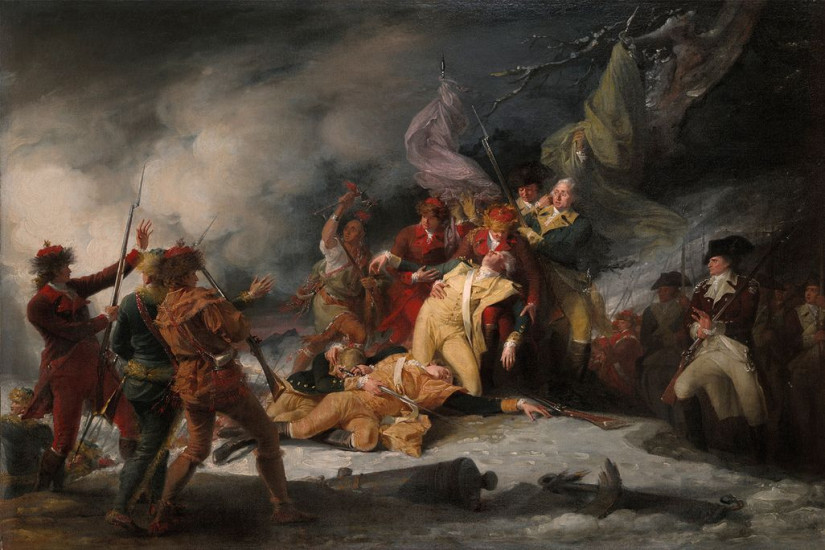Why the patriots wanted Quebec to join their revolution
After Great Britain emerged victorious in the French and Indian War, a clash with France over territory in North America, in 1763, it faced a difficult task: managing Quebec, a sprawling former French colony where the Catholic majority had little in common with their new Protestant rulers. To heal the wounds of the war and streamline governance, the British Parliament passed the Quebec Act in 1774. The legislation’s compromises were significant. The criminal law code became British, while civil and property law in the province continued to follow the French model. The act largely preserved Quebec’s feudal land distribution system, and it allowed residents the right to freely practice “the religion of the Church of Rome,” so long as they stayed loyal foremost to Britain’s king, George III.
The act’s most controversial reform, however, was expanding the official boundary of Quebec to the Ohio River Valley, which conflicted with prominent American colonists’ property interests and their hopes of expanding on the Western frontier. Many residents of the lower Thirteen Colonies took the Quebec Act as yet another instance of “ministerial tyranny” akin to the Coercive Acts, which were passed that same year to punish Massachusetts for the Boston Tea Party and other incidents of unrest in the city, as Anderson tells Smithsonian magazine.
/https://tf-cmsv2-smithsonianmag-media.s3.amazonaws.com/filer_public/de/23/de23492c-3794-40f4-885c-c599411b6efd/british_colonies_1763-76_shepherd1923.png)
This line of thinking goes some way in explaining why the delegates of the First Continental Congress wholeheartedly condemned the Quebec Act—and Quebec itself—in September 1774 as “dangerous in an extreme degree to the Protestant religion and to the civil rights and liberties of all America.”
But just a month later, in what Holly A. Mayer, an emeritus historian at Duquesne University, calls a “tremendous flip,” the delegates started trying to court French Canadians to join their anti-British crusade instead.
In a letter, the delegates impelled their “friends and fellow subjects” to join them in demanding self-government and other rights from their British rulers. Quebec, they wrote, was “the only link wanting to complete the bright and strong chain of union.” Where religious differences once threatened enmity, the delegates were now convinced that both sides were “above all such low-minded infirmities.” If Switzerland had Catholic and Protestant communities living in “the utmost concord and peace,” the letter’s authors mused, so could the United Colonies, as the not-yet-independent proto-state was then called.
The reason for this remarkable switch in attitude was the delegates’ realization that having a heavyweight colony like Quebec on their side would amplify the American Colonies’ protests against British tyranny. It would also mean that British troops couldn’t crush the rebellion from the north. “Exigency sparked enlightenment,” Mayer tells Smithsonian.
